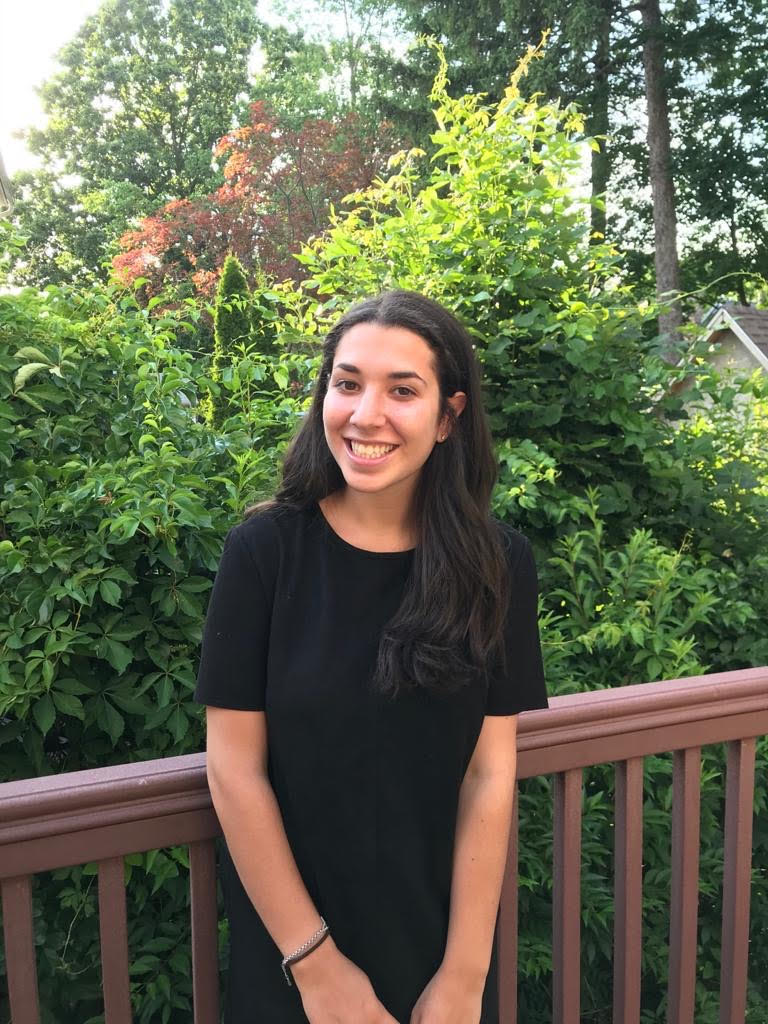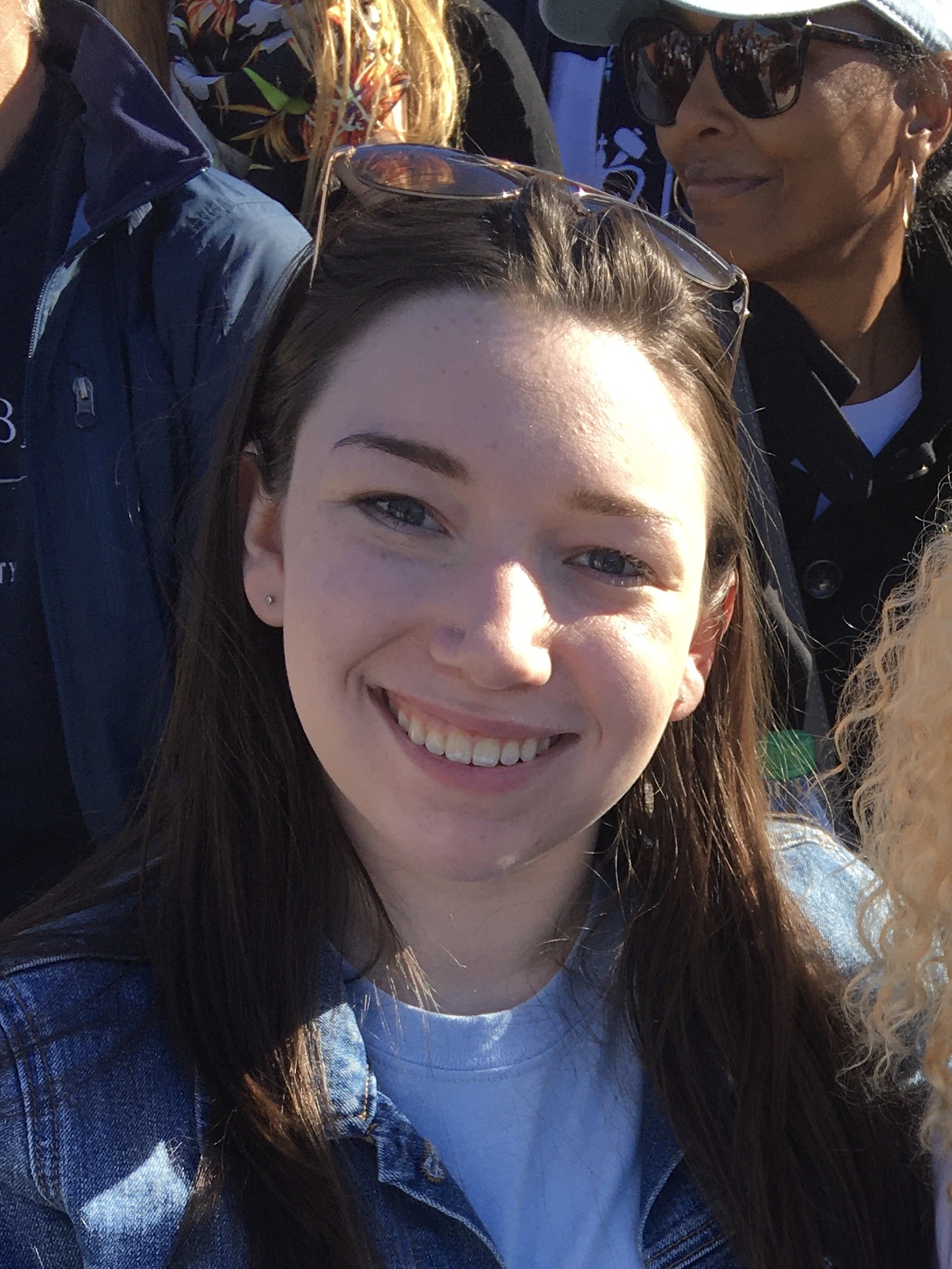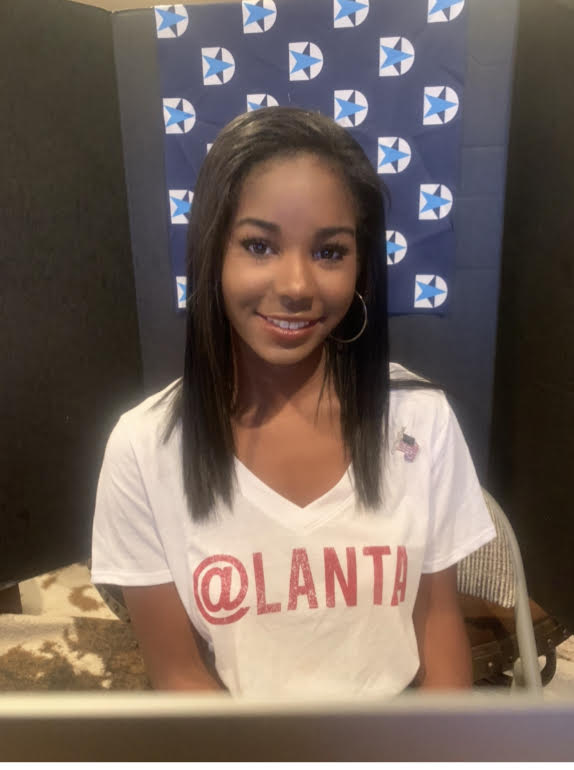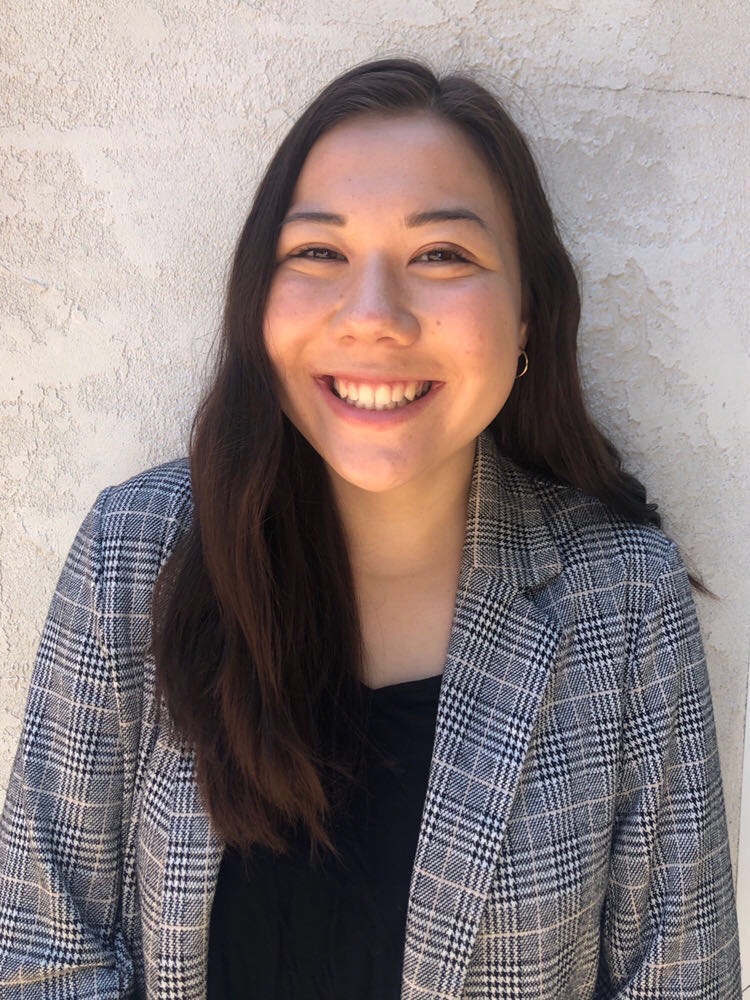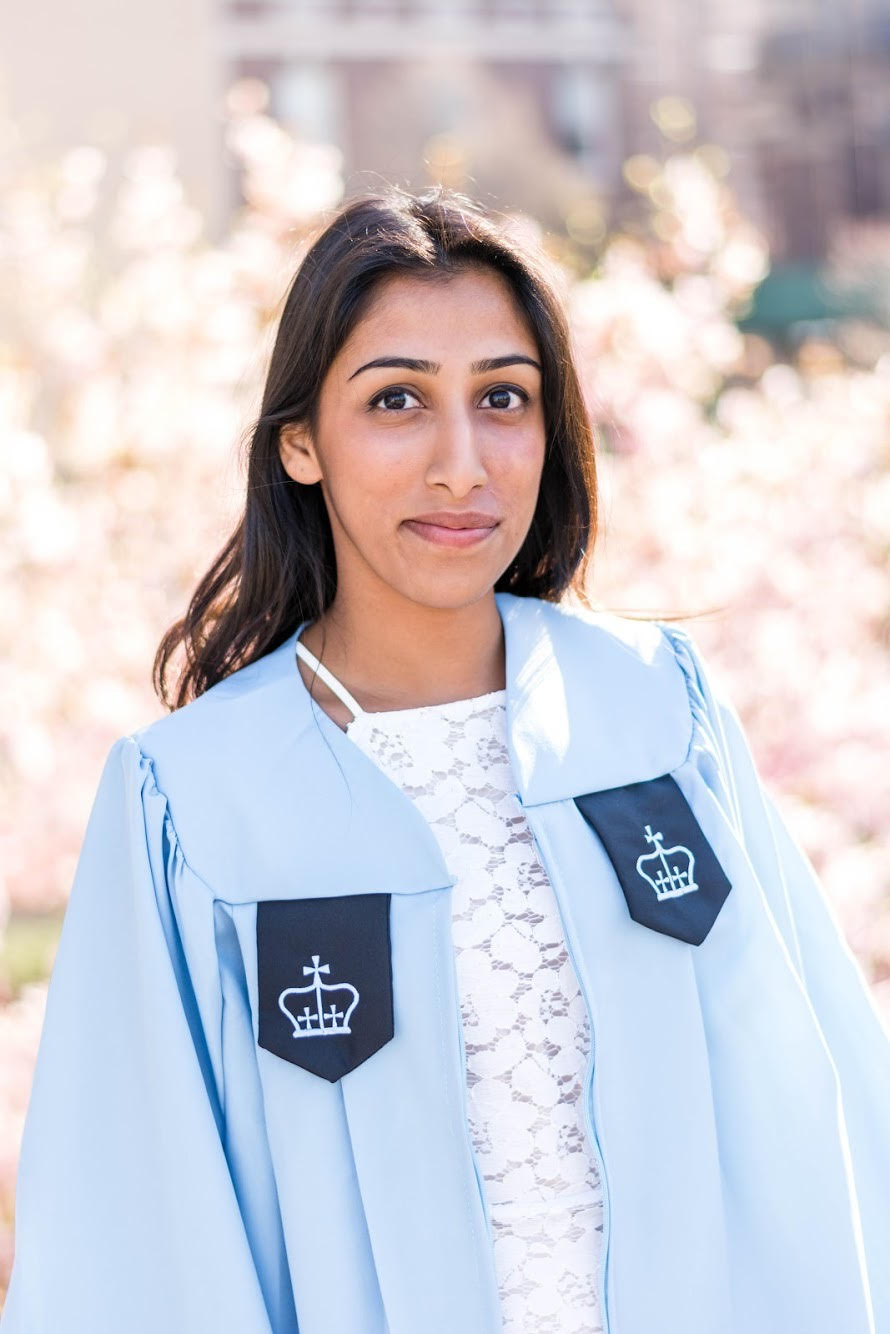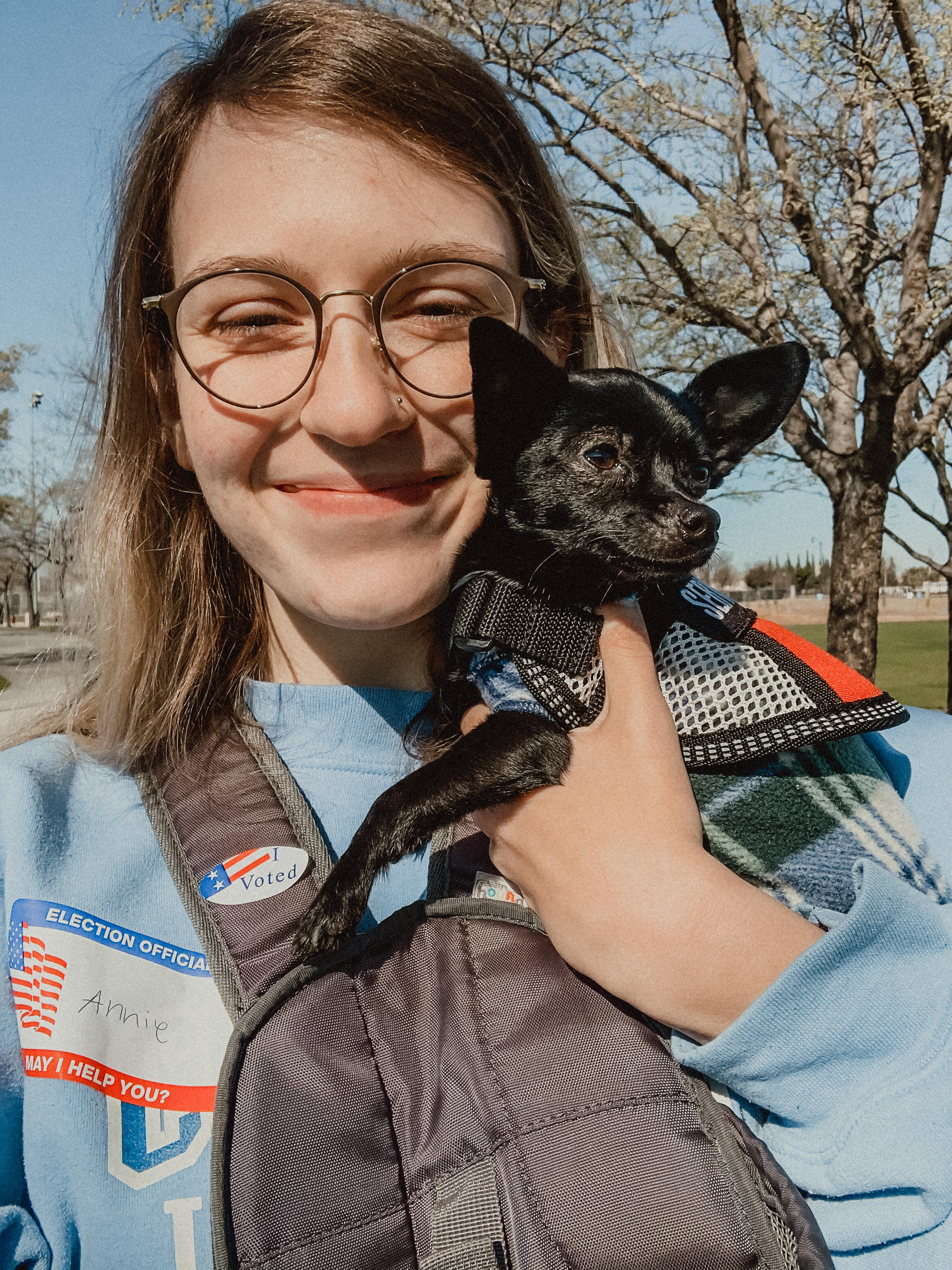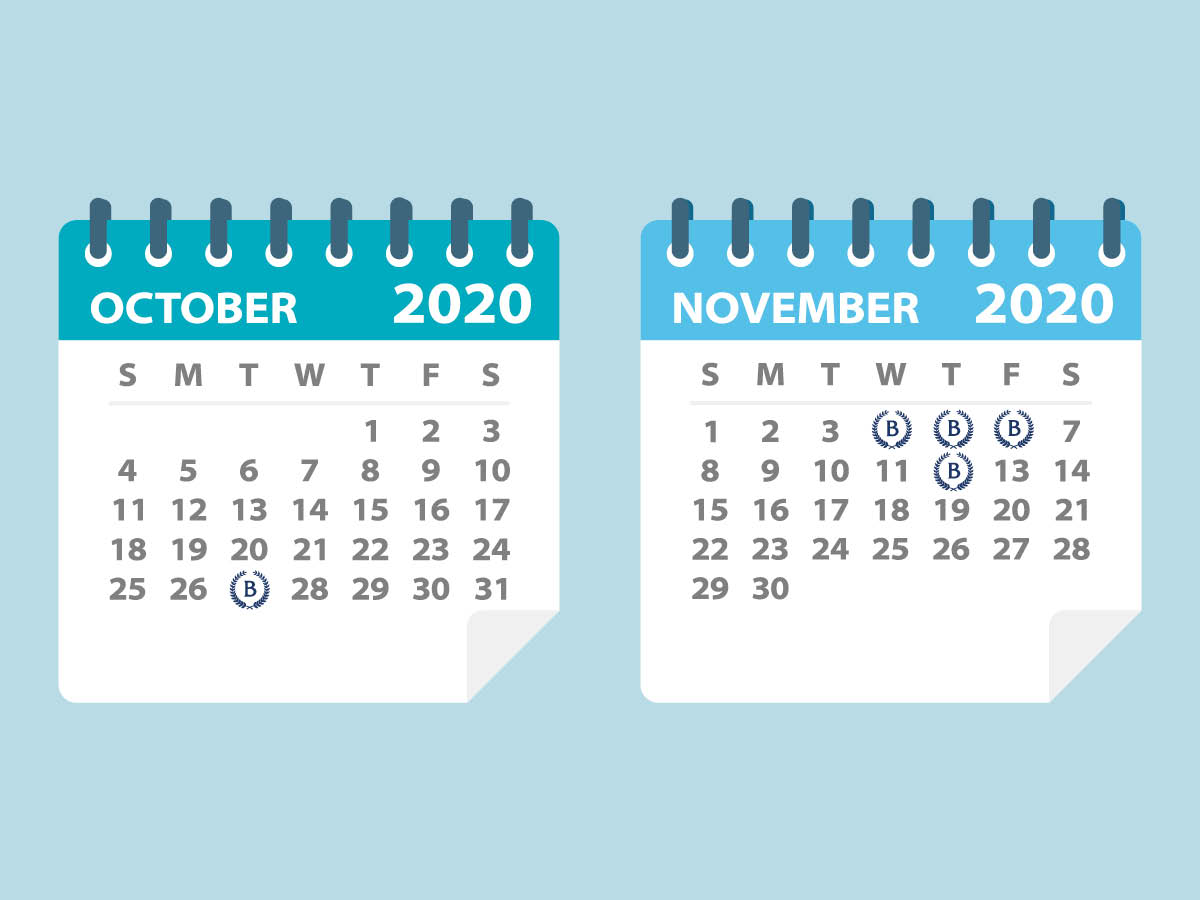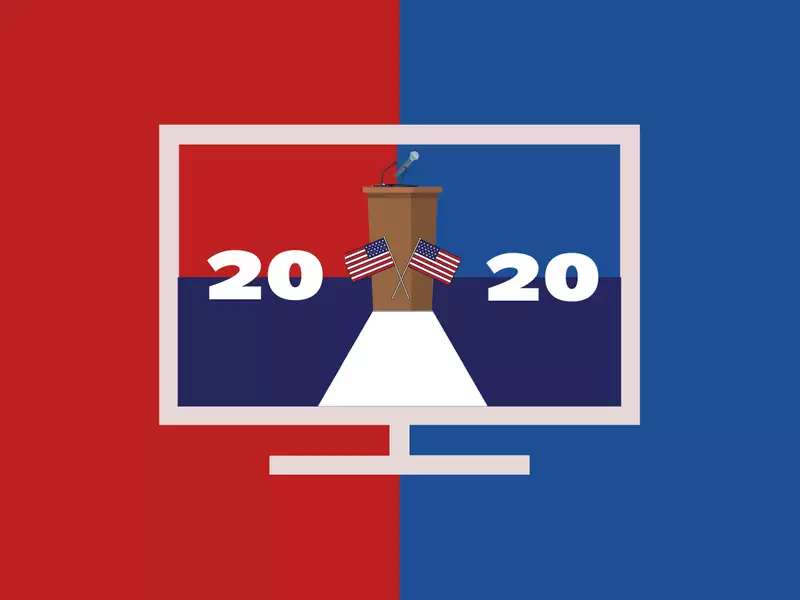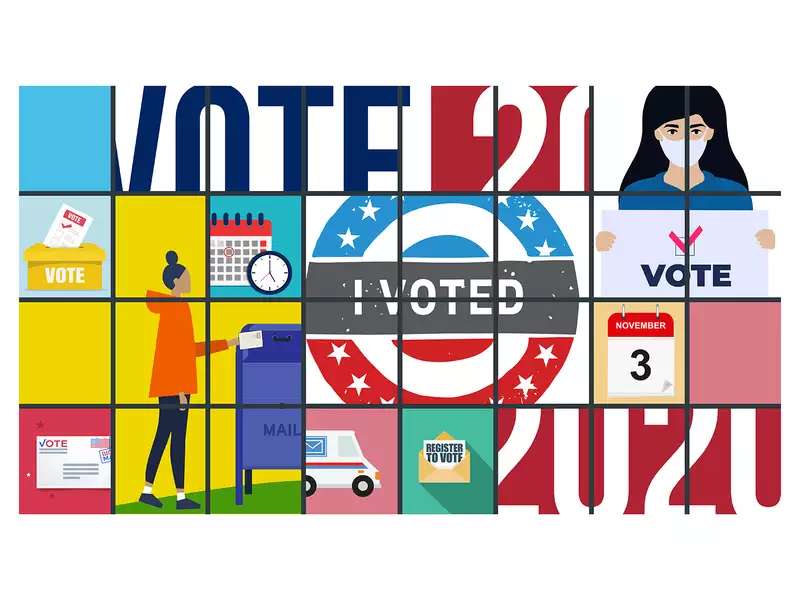As the United States draws closer to an extraordinarily unusual Election Day, many people across the country are participating in civic engagement projects such as phone banking, voter registration drives, and volunteering with campaigns. For many Barnard students, the challenges caused by the pandemic — learning from home, canceled internships, and more — have presented unique opportunities to get involved with the political process at all levels. Recent graduates are also leveraging their degrees and skills to make a difference. Read below about the various projects and campaigns in which our students and young alumnae are engaged.
Students
Avigayil Altman ’22
I have been volunteering for the Biden campaign since May. When I first became involved, I sat in on meetings about how to engage with voters, which voters we were targeting and why, and how to help them register to vote or get involved in the campaign in some capacity if they were interested. Afterward, I did text and phone banking for the campaign. I called voters from all over the country, and we discussed either current events or ways they could get involved, or we just had a brief conversation about whether or not they were going to vote for Biden. Too many people in our democracy are not taking advantage of the right to vote and are apathetic to the significance of politics today, and being able to play a small part in helping people to become more involved was extremely meaningful to me.
One of the main reasons I decided to get involved with the campaign this year was because this year felt different than other election years have — the country seems more divided than ever. From racial tensions to issues like the environment, the economy, and gender equality, as well as the COVID-19 pandemic and the response to it, there is so much at stake. Volunteering with the campaign was the best way for me to get involved in the election in a meaningful way and be able to discuss issues that matter to me. I am politically minded, and the way that I felt I could best help the country get back on track, even in a small way, was to get involved with Biden’s campaign.
Ellie Gaughan ’22
This semester I am working as the campaign manager for Meg Kilcoyne for State Representative [12th Worcester District, Mass.]. I started with this campaign over the summer as a field director — an opportunity that I was really grateful for because, like so many of my peers, my planned internship was canceled due to the pandemic. I was feeling unproductive and anxious about the state of politics in our country, so working on the campaign gave me a great outlet for this energy and an opportunity to learn. I think the importance of local and state races is often overlooked, but there’s truly so much opportunity to make tangible change at this level. Interacting with members of my community and working for a cause that I believe will improve the quality of life for many people has been rewarding and a great comfort in such stressful, uncertain times. This campaign has also allowed me to learn more than I ever thought possible about politics and campaigning and has bolstered my passion for this field.
Audrey McNeal ’24
On behalf of Georgia’s 11th District, I was elected by popular vote as a delegate to the Democratic National Convention (DNC). Leading up to the convention, we created and formally confirmed our party’s platform, and at the convention we officially nominated our candidates for president and vice president. I felt uniquely active in the writing of American history while nominating the first vice presidential party nominee who is a woman, Black, and South Asian American.
Since many campaign events this year, such as the DNC, had to be held virtually, I saw how I could serve a purpose by encouraging young people through social media to cast their votes. I’ve spoken with the Harvard Diversity Project on Instagram Live and kicked off a virtual challenge on behalf of a Delta Sigma Theta sorority chapter to get out the youth vote. Also, I promoted the Georgia Youth Poll Worker Project, which is working to get 5,000 young people to become poll workers on Election Day, in the face of a predicted shortage of poll workers. Additionally, my book of original poetry, A Lake of Stars, is written to inspire young people — especially young women and people of color — to recognize their power and express themselves on political and social issues.
As one of this year’s inaugural ambassadors for the Partnership for Southern Equity’s “Keep That Same Energy” task force, I will continue community organizing and coalition building by carrying out events, such as our Youth Equity Event and more community meetings, that advance the perspectives of young Americans.
Katie Petersen ’22
I’m a political science major and the president of ColumbiaVotes, a nonpartisan and student-run voting rights organization that helps students register to vote and aims to create a culture of civic participation on campus. I’m also a student representative on the CU Engage Task Force, a Columbia representative of the Ivy League Votes Challenge, a member of the Campus Vote Project’s Student Advisory Board, and a poll defender for +1 The Polls. Through these organizations, I work at both the institutional and grassroots levels by partnering with [college] administrators to remove barriers to voting and organizing students to register their peers to vote. This election cycle, I’m doing contract work in digital communications for a variety of local candidates and organizations in my home state of California.
Younger voters disproportionately vote at much lower rates compared to voters of other age demographics, which is why it’s so important that every eligible student on our campus is asked to register to vote and is given the resources to do so. Even on politically engaged campuses like Barnard and Columbia, we still have thousands of students who are eligible and don’t participate in the electoral process. This year, students and voters more generally are facing new challenges to voting, which is why [we have] to reach students digitally with the most up-to-date information to ensure that their vote is counted. I encourage all members of our community to find their state-specific information, make a voting plan, vote early, and then make sure their friends and family do the same!
Grace Stone ’23
Mae Viccica ’21
This semester, I wanted to get involved in the election and civic tech, so I took on an internship and a fellowship in addition to my two classes. My internship is with Rising Tide Interactive, a digital marketing agency that provides data-driven strategies for Democratic candidates and causes. I am in the client strategy department and help pull together reports and build ads for the firm's clients, including a senator’s reelection campaign and an immigration reform advocacy group. My fellowship is with Bluebonnet Data, a nonprofit that recruits and trains data volunteers to work on down-ballot campaigns across the country. I have been assigned to a Washington, D.C., City Council race with two other fellows and am currently building phone bank lists using voter databases to reach likely voters.
With these two organizations, I am devoting over 30 hours a week to Democratic successes, and it’s been incredibly rewarding so far. I wanted to get involved in this election cycle because I study political science and statistics, and this is the perfect opportunity to apply my skills. I am enthusiastic about getting hands-on political data experience and learning from the amazing teams I’ve joined. After the pandemic hit, I felt an urgency to focus my time on this election cycle. 2020 is meaningful because I was too young to vote in 2016, and this is the first presidential election that I can cast a ballot in. I wanted to participate beyond voting this time, and I’m so excited about the work I’m contributing to!
Alumnae
Aditi Somani ’18
Earlier this fall, I made the decision to leave J.P. Morgan and join the Biden for President campaign. After months of agonizing over the question “What do I want to do next?”, my plans ultimately came together quickly, thanks to the mess that has been 2020. As I’m sure everyone reading this can understand, 2020 has been a difficult and confusing year. With one disastrous news cycle snowballing into another, it’s been impossible to process everything we’ve experienced over the past 12 months: impeachment trials, devastating wildfires, a pandemic that has taken the lives of over 217,000 Americans, the passing of our beloved Justice Ruth Bader Ginsburg, and a resurgence of protests and activism after the heartbreaking [killings] of George Floyd, Breonna Taylor, Ahmaud Arbery, Rayshard Brooks, and far too many others. All of this to say that, no matter the outcome on November 4, I wanted to know that I had personally done everything in my power to make sure we had some bit of hope going into the next four years. For me, working on the campaign was the answer.
My responsibilities at Biden for President are twofold. I sit on the paid media team that leads all of Joe Biden’s advertising and fundraising efforts. Half of my day is spent liaising with our various program leads and budget team to make sure we are on track to reach every voter possible and hit $0 in our bank account by November 3. The other half of my day is spent ideating on and delivering creative content for our voter education campaign to inform people in key states how they can cast their ballot safely and securely. As you might imagine, my new role is a significant departure from investment banking, but so far I’m enjoying every minute of it.
Annie Wensley ’19
I’m a public employee in San Francisco who organizes around accessibility and disability. Formerly, I worked on Kamala Harris’s presidential campaign — before she became the Democratic nominee for vice president — based out of Oakland.
In regards to the election, I’ve been partnering with a few organizations that focus on increasing access to voting, mail-in ballots, and registering voters, particularly young or first-time voters. This election is especially important to me because of the restrictions and access to voting during this election. There’s no doubt that voting is a fundamental right that must be accessible to all populations no matter the communities they belong to and their social status. I do what I do because I know the story of this election will be decided by [inclusive] access to voting, [especially in regard to] race, age, gender identity, sexual orientation, socioeconomic status, and disability.
Are you a Barnard student or alumna who is civically engaged this fall? Tell your story on social media and be sure to tag @BarnardCollege. If you’re voting early, share your picture with us by using the hashtag #BarnardVotes. (Please note that, due to voter laws in many states, the College will not share any photos with marked ballots.)
Debriefing 2020
To help the community better understand the election process before and after Election Day, the College is hosting a series of events over the next few weeks. See a sample below:
- Oct. 27, 6:30 p.m.: November 3 and Beyond: Examining the 2020 Election, a lecture by Prof. Michael Miller
- Nov. 4, 3-4 p.m.: Listening hours through the Furman Counseling Center
- Nov. 4, 6 p.m.: Faculty panel discussion about the election and what’s next, with Maria Hinojosa, Michael Miller, J.C. Salyer, and Elizabeth Ananat, moderated by Provost Linda Bell
- Nov. 5, 5:30 p.m.: Postelection conversation with Athena Center director Umbreen Bhatti ’00 and Emily Ramshaw, co-founder and CEO of The 19th*
- Nov. 6, 12-1 p.m.: Listening hours through the Furman Counseling Center
- Nov. 12, 5:30 p.m.: Postelection conversation with Athena Center director Umbreen Bhatti ’00 and Soraya Chemaly, executive director of The Representation Project
